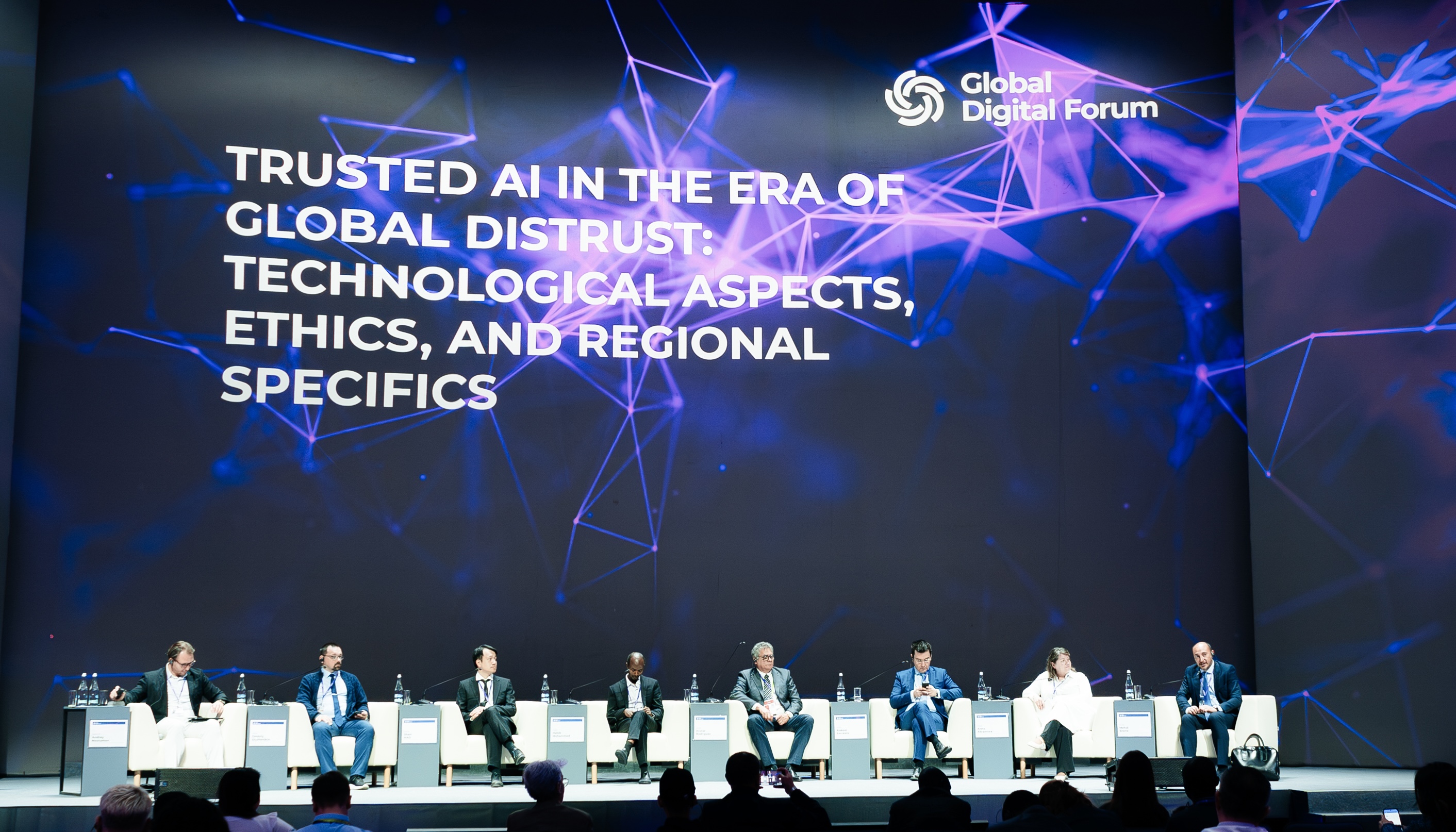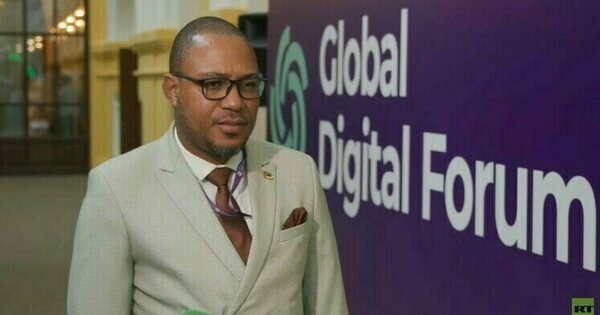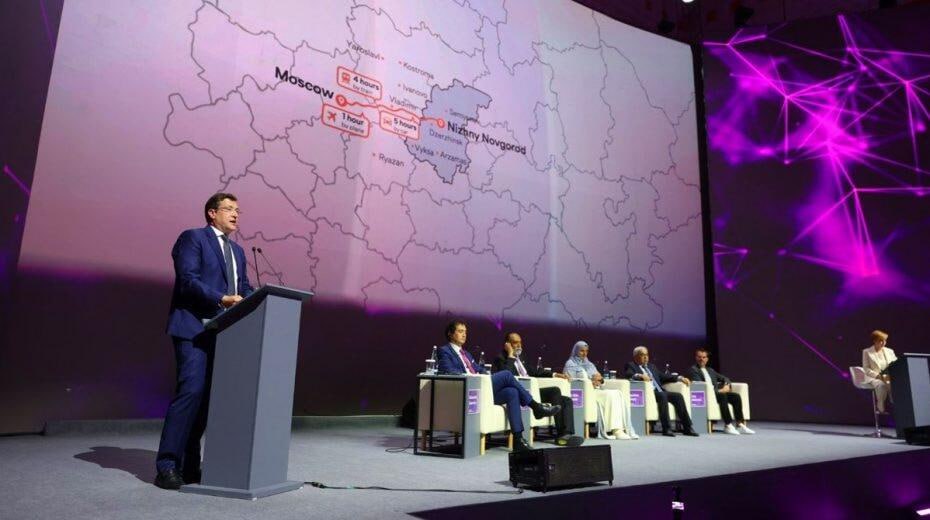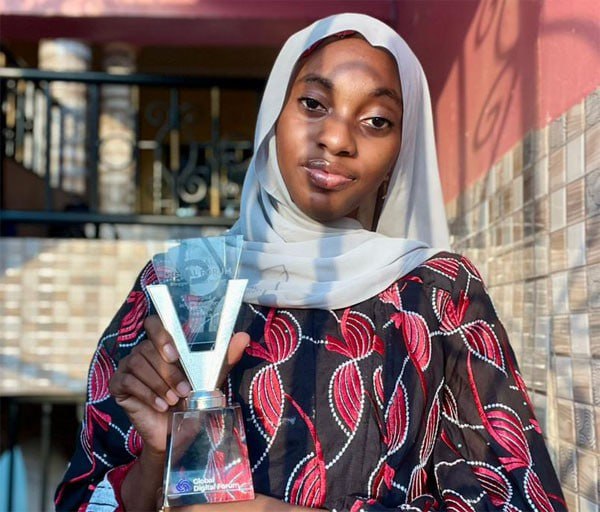Experts at the GDF in Nizhny Novgorod examined the principles for building trusted AI
At the Global Digital Forum in Nizhny Novgorod, Sber held the session “Trusted AI in an Age of Global Distrust: Technological Aspects, Ethics and Regional Specifics.” Representatives of the UN, UNIDO, academia and business debated issues of cultural adaptation of artificial intelligence (AI), its integration into society and the international regulation of the technology.
Trusted AI: concept and context
Moderator Andrey Neznamov, Managing Director of Humancentered AI Center, Sber, Secretary-General of AI Alliance Network, noted that trusted artificial intelligence means building intelligent systems that are reliable, secure, efficient and productive in use. In Russia, AI is viewed as a tool that demands a conscious and responsible approach: models are stress-tested and humans remain in the loop for critical decisions. The top priority is not merely to deploy technology, but to do so thoughtfully and safely, with respect for users and society. Trust in AI, he stressed, is a multidimensional endeavour linked to transparency, ethics and inclusivity—an ideal to be pursued.
Keynotes and international perspectives
Amandeep Singh Gill, UN Under-Secretary-General and Special Envoy for Digital and Emerging Technologies, opened the discussion. He underscored the need for a comprehensive and balanced approach to regulating, developing and applying AI at the international level, given its profound impact on society, the economy and politics. Strengthening global and regional cooperation is vital.
Mehdi Snen, AI and Digital Transformation Senior Advisor, Office of the UN Secretary-General’s Envoy on Technology, distinguished two layers of AI progress: sectoral deployment and national approaches. While some states are just beginning to adopt AI, others are rapidly advancing it. The UN’s main effort is to close the digital divide, which could soon turn into an AI gap; the Organisation will boost support for low-tech countries.
Shen Hao, Deputy Chief Technologist of Shanghai Artificial Intelligence Research Institute, described SAIRI’s three-tier strategy for safe and ethical AI. The institute has created a robust regulatory base—over one hundred industry standards and ethical norms—with practical guidelines for secure AI development from the earliest stages. Research is grounded in ethical principles, prioritising explainability, privacy and human oversight, and SAIRI pursues responsible innovation with institutions in 20 + countries.
Héctor Rodríguez, Vice-president, Havana Science and Technology Park, reported that Cuba unveiled a comprehensive AI strategy in 2024 covering six key areas, from science and innovation to public administration. Particular emphasis is placed on balancing progress with risk—transparency, ethics and labour-market impact. AI, he argued, demands not only innovation but solid ethical frameworks; cross-sector dialogue (developers–regulators–society) is essential.
Habib Mohammed, Head of the Center for Excellence in AI and Robotics, Addis Ababa Science and Technology University, stressed the need for ethical, reliable AI systems based on safety, transparency and human control. Weak infrastructure and scarce data in Africa pose challenges yet open opportunities for innovative solutions in medicine, agriculture and finance. Key tasks are harmonising regulation and fostering localised AI initiatives so African nations can pursue their own technological paths.
Russian perspective and closing remarks
Concluding the session, Andrey Neznamov highlighted Russia’s focus on the ethical dimension of AI. He cited the White Paper on AI Ethics, published in December 2024 by the AI Alliance’s Ethics Code Implementation Commission, which offers practical recommendations on human–AI interaction, featuring real-world cases and international practice. The document stresses that ethical norms do not hinder technological progress but underpin reliability and user trust.
Additional contributors
The session also featured:
● Alexey Savrasov, Industrial Development Officer, Division of Digital Transformation and Artificial Intelligence, UNIDO;
● Dmitry Sluzhenikin, Advisor on Special projects, National Technological Center of Digital Cryptography;
● Anna Abramova, Director AI Centre, Moscow State Institute of International Relations, Russia.




